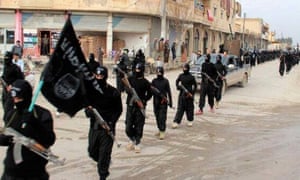by Vishnu Som
November 19, 2015

Army pays tribute to Colonel Santosh Mahadik who was killed in an encounter with terrorists in north Kashmir.
NEW DELHI: Did Colonel Santosh Mahadik, the 38-year-old Indian Army Officer who died in an encounter yesterday need to personally place himself in the line of fire in taking on terrorists in Kashmir?
Yes. Without doubt. That's the message of the Army's Northern Army Commander, Lieutenant General DS Hooda. In an interview to NDTV, Lt Gen Hooda was absolutely clear: "The ethos of the Indian Army, the culture of the Indian Army - these are things that are sometimes not very well understood. We have a concept of unlimited liability. A man goes into battle, a man faces terrorists and he faces them sometimes with certainty that he could lose his life."
Mahadik would not have regretted going down the way he did. Speaking to NDTV, Colonel SS Shekhawat, an Officer of the Army's elite 21 Special Forces who once commanded Mahadik says, "It is a great loss. But he has gone in style. With a bullet in the chest and we draw inspiration from him. This is the way to go for a soldier. And this is the way to lead for a soldier. From the front."

Colonel Santosh Mahadik (second from right) practicing shooting
Colonel Santosh Mahadik was killed in a counter infiltration operation in the Manigah Forest of Kupwara. He was in the forefront of a search party which was pursuing terrorists in extremely inhospitable terrain when terrorists targeted him with heavy machine gunfire. Mahadik was distinctly unlucky. The bullet that killed him struck his neck, an area that was not protected by his bullet-proof jacket. The operations to neutralise the terrorists are still continuing.
For those who were his course-mates, Mahadik was always there for them. According to Colonel Sumeet Dua, an old friend right from when the two were in the Indian Military Academy together, "He was the most prepared officer to come to the Academy. He was physically the fittest, the strongest with the most endurance. He had a penchant for helping not just his peers but also his subordinates."

Colonel Mahadik is the second Commanding Officer of the Indian Army to have been killed leading soldiers from the front. In January, Colonel Munindra Rai of the Gorkha Rifles died in Tral in Kashmir in a similar operation.
Colonel Santosh Mahadik, who was given a military farewell in Srinagar today is survived by his wife, an 11-year-old daughter and a five-year-old son.













